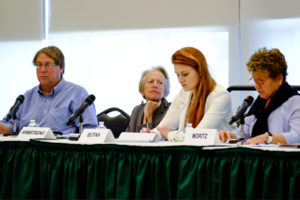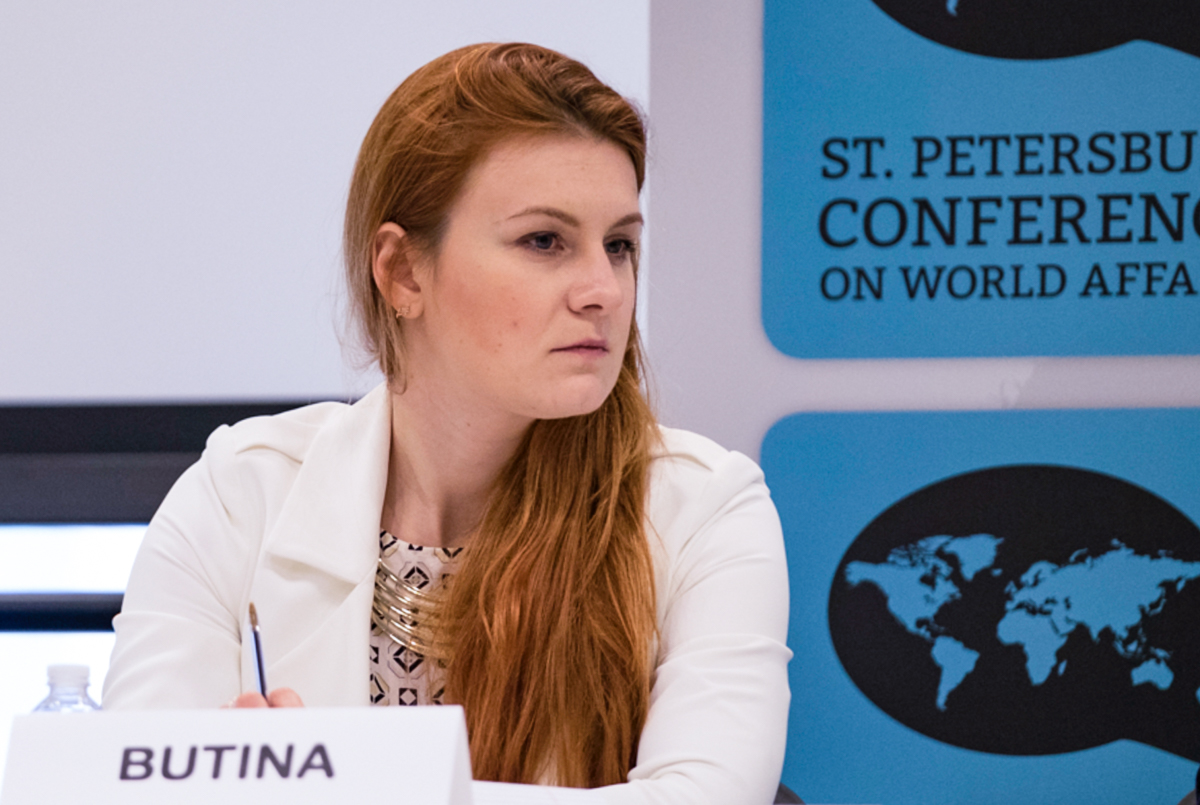Maria Butina during the “Gun rights, Mental Health Rights/ Where Should Societies Draw the Line?” panel at the 2016 Conference on World Affairs. Courtesy of Jean-Pierre Durousseau
By Amy Diaz
Hundreds of diplomats, professors, business executives and journalists have come to USF St. Petersburg to speak on campus since the annual conference on world affairs began in 2013.
One of them now stands accused of being a Russian spy.
Maria Butina, 29, was arrested last month by federal authorities who say she used gun rights and sex appeal to win favor with conservative groups and advance Russia’s interests. She has pleaded not guilty.
“Needless to say, when we invited her to come speak we had no idea that she would be an alleged Russian spy,” Dr. Thomas Smith, a political science professor at USF St. Petersburg and conference co-organizer, said. “At the conference, we work really hard to represent a diversity of viewpoints and to kind of see across the political spectrum.”
For the 2016 panels on “Gun Rights, Mental Health Rights/ Where Should Societies Draw the Line?” and “Russia: Imperial Aspirations on a Beer Budget,” Butina, billed as a graduate student and founding chairman of a Russian organization called Right to Bear Arms, appeared to be a great panelist to add a unique, international perspective.
“She was very engaging. She spoke about how difficult it was to obtain a gun in Russia and went through a litany of hurdles that the state had raised for gun owners,” Smith said. “In some ways she added an angle to the conference.”
Butina’s appearance was arranged by the program committee, not the university.
On the gun rights panel with Butina was Dr. Mary Armstrong, a family studies professor at

USF Tampa who was invited to speak after the Tampa Bay Times printed a column she wrote on gun rights and mental health.
“I wasn’t sure what anyone else was going to say on the panel, but it became clear to me that she had been selected because she had a very different point of view about guns and firearms and who should have them,” Armstrong said. “To think that she is possibly a spy is like, ‘Oh my goodness.’”
Dr. Kees Boterbloem, a history professor at USF Tampa and author of several books on Russian history, served on the second panel with Butina.
“The panel I was on had a professor of geography, an investigative journalist and a woman who has started the Russian counterpart of the NRA,” Boterbloem said. “So I’m thinking, ‘OK, this is going to be interesting.’”
Boterbloem recalled Butina defending Russian President Vladimir Putin and arguing that Russia and America should be friends.
“There is an enormous Russian expatriate community in the United States. It’s not so strange to meet people who are pro-Putin or anti-Putin and she didn’t really strike me as particularly different from them,” Boterbloem said. “But, of course, to my great astonishment she was arrested a month ago.”
When news of Butina’s arrest broke, Dr. Raymond Arsenault, a USF St. Petersburg history and politics professor and moderator of the gun rights panel, was shocked.
“Immediately my ears perked up because she sounded so familiar,” Arsenault recalled. “As I read about it, I realized it sounded exactly like the woman who was on the panel. And it was.”
The St. Petersburg Conference on World Affairs has become one of the campus’ signature events and has attracted thousands of people, ranging from students to retirees.
“She’s probably the most famous, or infamous, connection we’ve had,” Arsenault said. “It’s a fascinating little piece of history.”



